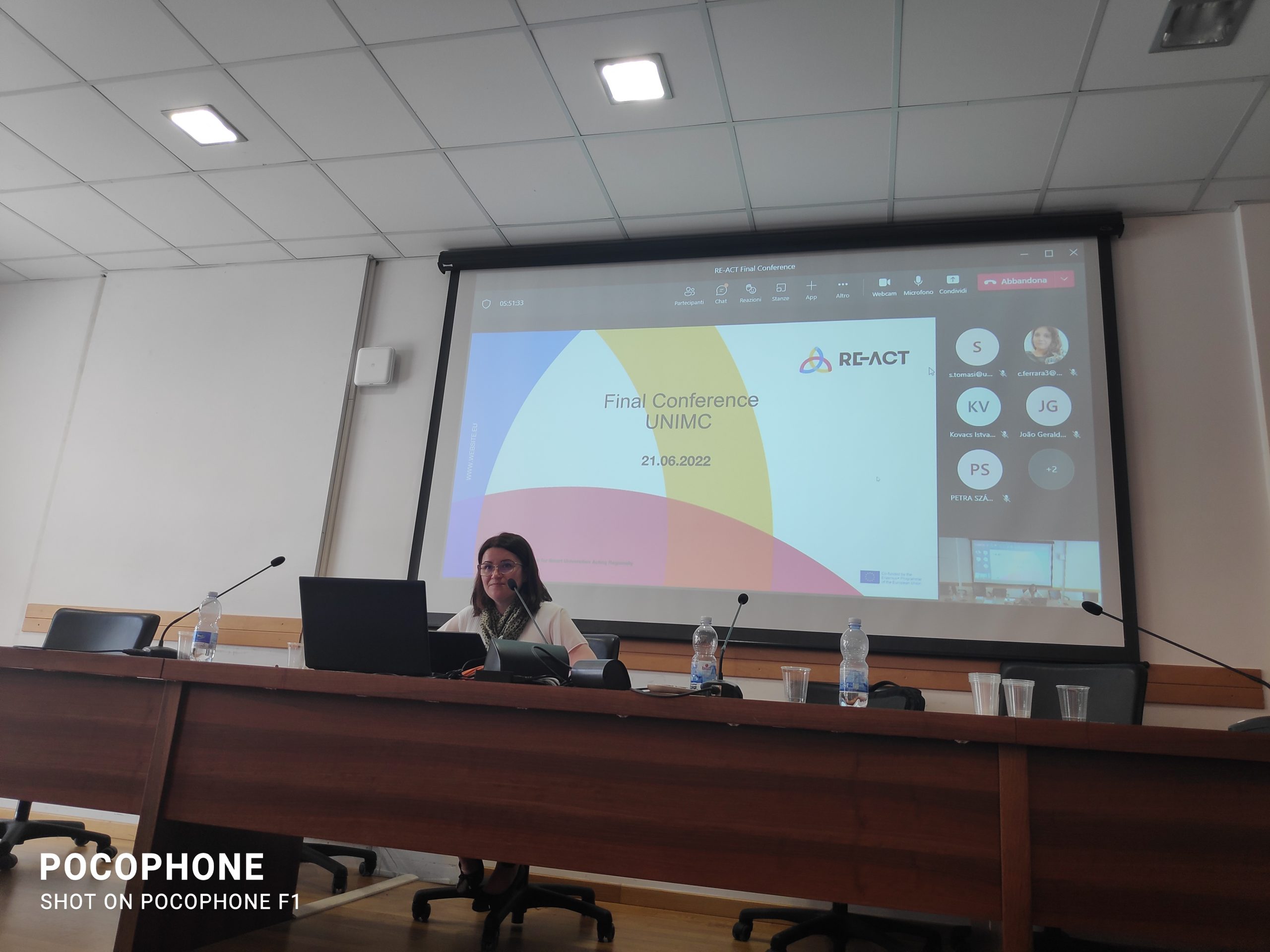RE-ACT final conference showcased Multistakeholder collaboration in European Regions
The RE-ACT final conference, held on the 21st of June online and in Macerata, hosted by UNIMC, was the stage and spotlight of regional multistakeholder collaboration. It was a full day with various interventions from RE-ACT partners and guests, all around the challenges and importance of fostering engagement of different parties in regional ecosystems.
After a warm welcome and speech by the representatives of the University of Macerata, RE-ACT partner that hosted the event, works started with an intervention by John Edwards, Secretary General of EURASHE, about the role of HEIs in the Quadruple Helix collaboration for RIS3. This was a particularly inspiring moment for RE-ACT partners, as most of them are Higher Education Institutions committed to consolidating relations with other stakeholders of the quadruple helix.
The next part of the event was dedicated to presenting RE-ACT and other projects working around the topic HEIs’ contribution to regional development and innovation. The coordinator Catarina Reis, from PBS, held a global presentation of the RE-ACT and its results, followed by the “tales from HEInnovate inspired Forward-Looking Cooperation projects” where the representatives of the projects UASIMAP, BEYONDSCALE and THEY2.0 presented the respective projects.
After the coffee break, the focus was on the experiences and results of RE-ACT countries based on the activities implemented by partners from Porto Business School, Corvinus University of Budapest, Technical University of Košice, Universitatea Babeș-Bolyai and University of Macerata. Then, taking the occasion of the event being held in Macerata, there was a “live report” of the experience of the RIS3 revision process in Marche Region and implementation of the Quadruple Helix collaboration in this region, where the partner UNIMC played a key role in collaborating with the public authorities and establishing a bridge with other regional stakeholders to discuss the priorities and lines of action for the RIS3 2021-2027. To wrap up the “RE-ACT journey”, partner SERN gave an overview of the approach and main lines for the future sustainability of the project’s results.
The afternoon session was an occasion to share and exchange views on the contributions of RE-ACT and other projects to policy and to the future of regional collaboration.
Don’t miss the RE-ACT newsletter to be launched soon with more details about this great day!





